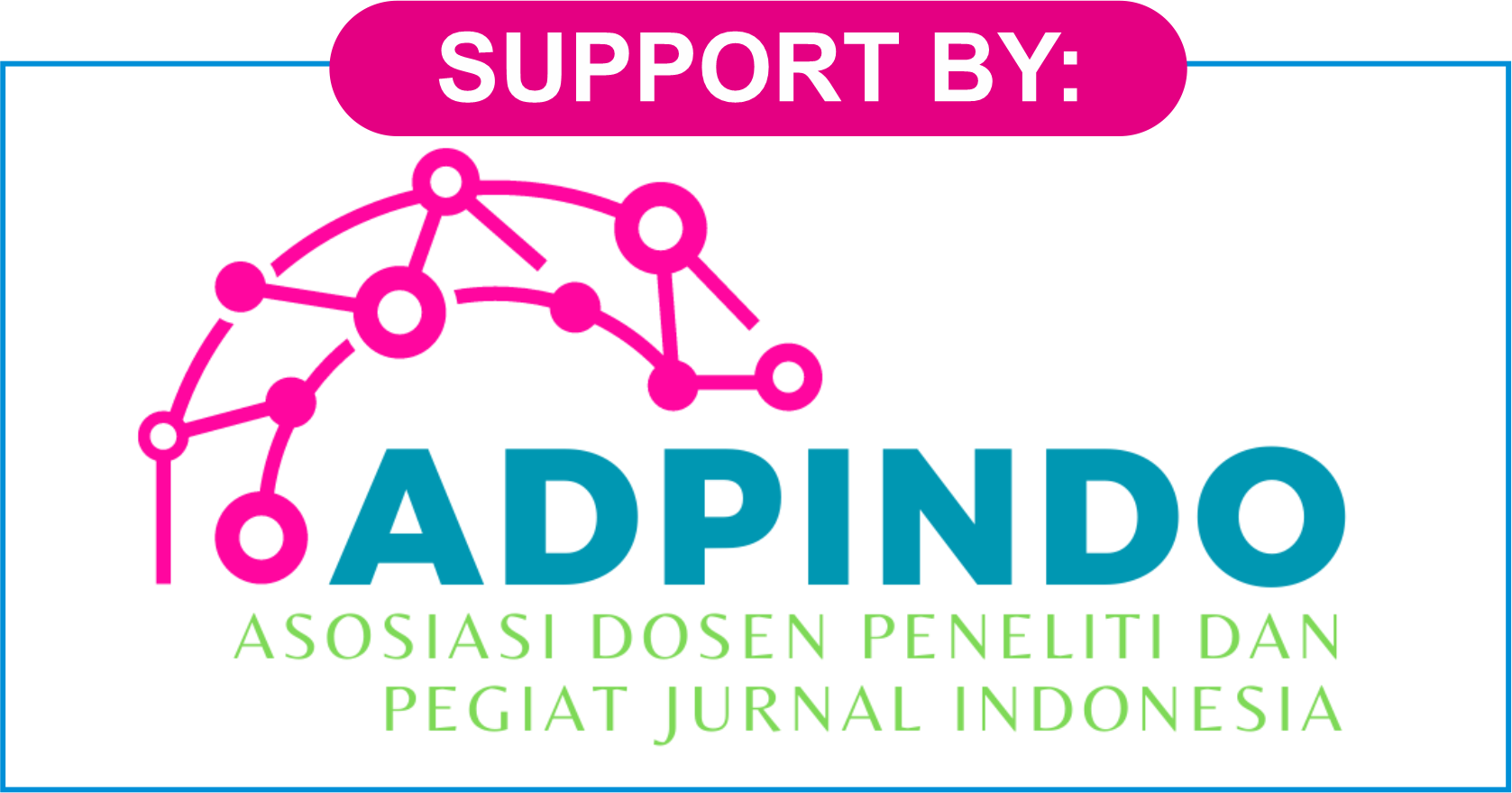DINAMIKA PERMAINAN MONOPOLI DALAM PERKEMBANGAN KOGNITIF SISWA-SISWI DI PAUD TK ANAK CERIA SURABAYA
DOI:
https://doi.org/10.47353/sikontan.v3i3.2599Keywords:
Monopoly, Stimulation, Cognitive, Children, PreschoolAbstract
Monopoly games are increasingly neglected along with the development of increasingly sophisticated gadgets. This research aims to stimulate the cognitive aspects of preschool children to be able to develop and train their abilities by using symbols, such as words, pictures, and ideas so that they can present a concept. This research is based on Piaget's cognitive theory, especially in the preoperational stage. This study used a qualitative approach, using participatory observation techniques and informal interviews involving three subjects and using a review of previous literature to compare the results of the study. The results stated that the subjects were able to present the media in the Monopoly game using language, number patterns, pictures, colors, train executive functions, and train children to organize strategies in solving a simple problem. The results of this study are also supported by giving pre-test and post test during the implementation of stimulation activities. Future research can use other simple media to train cognitive aspects of pre-school children, using quantitative methods so that other aspects outside this study can be measured and more systematic.
Downloads
References
Berk, L. E. (2009). Child development (8th ed.). Pearson Education.
Fiantika, F. R., Wasil, M., Jumiyati, S., Honesti, L., Wahyuni, S., Mouw, E., Mashudi, I., Hasanah, N., Maharani, A., & Ambarwati, K. (2022). Metodologi penelitian kualitatif. PT. Global Eksekutif Teknologi.
French, L. (2019). Piaget's stages of cognitive development: An overview. Retrieved from http://www.psychologytoday.com.
Ginsburg, H. P. (2009). The importance of play in promoting healthy child development and maintaining strong parent-child bonds. Pediatrics, 119(1), 182-191.
Ginsburg, K. R., & the Committee on Communications, & the Committee on Psychosocial Aspects of Child and Family Health. (2007). The importance of play in promoting healthy child development and maintaining strong parent-child bonds. Pediatrics, 119(1), 182-191.
Gelman, R., & Brenneman, K. (2004). The role of play in early childhood development. In R. H. Wozniak & M. J. Keating (Eds.), The Playful Child: The Role of Play in Early Childhood Development. Oxford University Press.
Lally, M., & Valentine-French, S. (2019). Life-Span Development: A Psychological Perspective. Annual Review of Psychology, 1–468. http://dept.clcillinois.edu/psy/LifespanDevelopment.pdf.
Morrison, F. J. (2009). The development of cognitive abilities. In J. D. Wright (Ed.), International Encyclopedia of the Social & Behavioral Sciences (2nd ed., pp. 3060-3065). Elsevier.
Neisser, U., Boodoo, G., Bouchard, T. J., Boykin, A. W., Brody, N., Ceci, S. J., Halpern, D. F., Loehlin, J. C., Perloff, R., & Sternberg, R. J. (1996). Intelligence: Knowns and unknowns. American Psychologist, 51(2), 77-101.
Papalia, D. E., Olds, S. W., & Feldman, R. D. (2007). Human development. McGraw-Hill.
Piaget, J. (1952). The Origins of Intelligence in Children. International Universities Press.
Pusat Kurikulum-Balitbang Depdiknas. (2007). Standar Isi Pendidikan Anak Usia Dini. Depdiknas.
Rakesh, D., McLaughlin, K. A., Sheridan, M., Humphreys, K. L., & Rosen, M. L. (2024). Environmental contributions to cognitive development: The role of cognitive stimulation. Developmental Review, 73, 101135.
Shore, R. (1997). Rethinking the brain: New insights into early development. Families and Work Institute.
Suyanto. (2005). Konsep Dasar Anak Usia Dini. Departemen Pendidikan Nasional Direktorat Jenderal Pendidikan Tinggi Rektorat Pembinaan Pendidikan Tenaga Kependidikan dan Ketenagaan Perguruan Tinggi.
Sujiono, & Yuliani, N. (2012). Konsep Dasar Pendidikan Anak Usia Dini. PT Indeks.
Utami, W. W., Buahana, B. N., & Astini, B. N. (2024). Pengembangan Permainan Monopoli Cerdas untuk Meningkatkan Perkembangan Kognitif Anak Usia 5-6 Tahun di TK Kartini Desa Sintung Kecamatan Pringgarata. Pendas: Jurnal Ilmiah Pendidikan Dasar, 9(3), 386-407.
Valentina Dewi, E.R., Hibana, H., & Ali, M. (2023). Pengaruh Penggunaan Media Loose Parts terhadap Perkembangan Kognitif Anak Usia Dini. Jurnal Obsesi : Jurnal Pendidikan Anak Usia Dini.
von Stumm, S. (2017). Socioeconomic status amplifies the achievement gap throughout compulsory education independent of intelligence. Intelligence, 60, 57-62.
Vygotsky, L. S. (1978). Interaction between learning and development. In Mind in Society: The Development of Higher Psychological Processes. Harvard University Press.
Downloads
Published
How to Cite
Issue
Section
License
Copyright (c) 2025 Lola Dwi Nata, Annisa Salsabila, Adeline Talitha, Amiroh Untsal Asad, Rhein Sasi Kirana

This work is licensed under a Creative Commons Attribution 4.0 International License.











